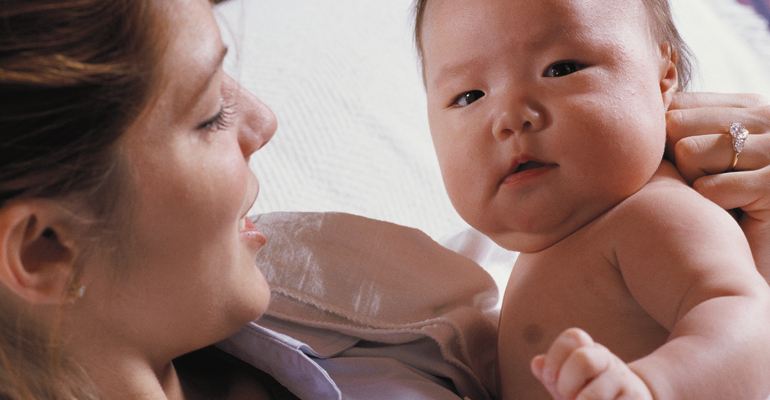We all carry our favorite names around in our heads. Perhaps they evoke a favorite aunt, a close friend, a rock star. When the time comes to name our baby, we pull that list out, compare it with our mate’s — and start negotiating. But when the baby in question is adopted, the task becomes more complex.
When it comes to names, adoptive parents have all sorts of questions: Should we consider the wishes of the birth mother? Is it all right to bestow a name rich in family tradition: Malcolm Jarvis IV, for example? What if our baby is older and has grown used to a given name? If she is from another culture, should she keep her name, or should we give her one we like?
Decisions, Decisions
There are no easy answers — and no right answers. As with much of child rearing, parents just have to follow their instincts. But there are a few salient facts to keep in mind.
Child development experts agree that babies as young as seven months react when called by name. However, a name change doesn’t become a significant issue until a child reaches age two. By then, a name has been internalized, and parents who change that name do so at some risk.
Too young to understand the reason for the change, a toddler may assume that there was something wrong with his old name, and therefore something wrong, or “bad,” about him. That said, many older children adopted from abroad like taking a new, more Westernized name. It’s a way of claiming their new family and country.
Many agencies recommend that a couple adopting an infant from another culture think about incorporating the child’s birth name into her new one. You might name your child Alice Mei Ling or Mei Ling Alice. Call her the one you prefer; when she reaches school age, she’ll choose the name she’s more comfortable using.
Don’t be surprised if your child switches back and forth between names as she grows. Kids go through stages where they want to be like everyone else (the “Alice” years) and times when they want to be different (the “Mei Ling” years).
Research indicates that children who grow up with unusual names tend to like them and consider them an asset. In fact, the right name may factor in your child’s success-making him feel unique and proud of his heritage.






